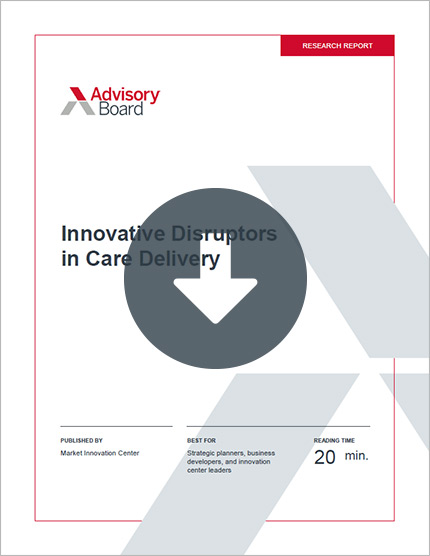Auto logout in seconds.
Continue LogoutGoogle grabbed headlines last week with a patent suggesting it may secretly be working on EHR technology—but that's far from the only way that Google and its parent company Alphabet are aiming to transform health care, reports CNBC's Christina Farr.
Remember Google Health?
Google first launched a health-focused site, Google Health, about a decade ago, but the effort failed in part because of consumers' reluctance to share their personal data on the platform.
But that misfire didn't stop Google founders Larry Page and Sergey Brin from pursuing health care ventures. Today, Alphabet has several health ventures under its "Other Bets" umbrella, through which it launches startup-like enterprises, Farr reports.
Some of Google's biggest bets in the space are a Google Brain project aimed at using AI-powered speech recognition technology to help doctors take notes during hospital visits, a project looking at using its Nest smart home technology in nursing homes, and a partnership with Walgreens to use technology to address medication non-compliance.
Yet many of the company's other moves into the space are often overlooked. Here are five lesser-known but still "ambitious" health care ventures that the company has been working on in recent years, according to Farr.
- A spoon for people with movement disorders
In 2014, Verily, Alphabet's health-focused unit, acquired Lift Labs to develop technology to help people with movement disorders eat on their own. Verily's Liftware spoon comes with sensors on either side that stabilize the utensil so that it "shakes 70% less than your hand," even if the user tremors, according to Verily. A starter kit is available for around $200.
- Mosquito-fighting technology
Verily's project Debug is an experiment that aims to reduce the number of Aedes aegypti mosquitos, which are known to spread Zika and other blood-borne illnesses, by releasing sterile, male mosquitos throughout Fresno, California. According to Verily, if female Aedes aegypti mate with the sterile male mosquitos—and thus do not produce offspring—the overall population will decrease.
- Teaming up with Stanford and Duke to understand what's 'normal' for human health
Through "Project Baseline," Verily is collaborating with Stanford Medicine and Duke University to collect and analyze data from 10,000 participants over four years using modern technologies. According to Albert Chan, chief of digital patient experience at Sutter Health, such studies can help doctors establish what's "normal" and "not normal" when it comes to patient health and disease.
- Predicting when patients may face severe health risks
Google's research group Google Brain is working on identifying potential medical events based on troves of clinical data provided by San Francisco Bay Area hospitals. The computers may soon be able to tell whether patients are at an elevated risk for potentially life-threatening conditions, such as sepsis, as well as whether they're more likely to be readmitted to the hospital.
- Making 'Dr. Google' smarter
Many people use Google to self-diagnose their symptoms, but the results often are confusing or flat-out erroneous. To help connect users with accurate information, Google is collaborating with Harvard Medical School and Mayo Clinic to "get smarter" about the content it shows users.
The company is also working with a team of doctors to analyze and verify health content on the internet. A group of licensed medical illustrators will use the information to create visuals for a pop-up that will direct users to "health conditions related to this search" (Farr, CNBC, 2/6).
Don't miss out on the latest Advisory Board insights
Create your free account to access 1 resource, including the latest research and webinars.
Want access without creating an account?
You have 1 free members-only resource remaining this month.
1 free members-only resources remaining
1 free members-only resources remaining
You've reached your limit of free insights
Become a member to access all of Advisory Board's resources, events, and experts
Never miss out on the latest innovative health care content tailored to you.
Benefits include:
You've reached your limit of free insights
Become a member to access all of Advisory Board's resources, events, and experts
Never miss out on the latest innovative health care content tailored to you.
Benefits include:
This content is available through your Curated Research partnership with Advisory Board. Click on ‘view this resource’ to read the full piece
Email ask@advisory.com to learn more
Click on ‘Become a Member’ to learn about the benefits of a Full-Access partnership with Advisory Board
Never miss out on the latest innovative health care content tailored to you.
Benefits Include:
This is for members only. Learn more.
Click on ‘Become a Member’ to learn about the benefits of a Full-Access partnership with Advisory Board
Never miss out on the latest innovative health care content tailored to you.

